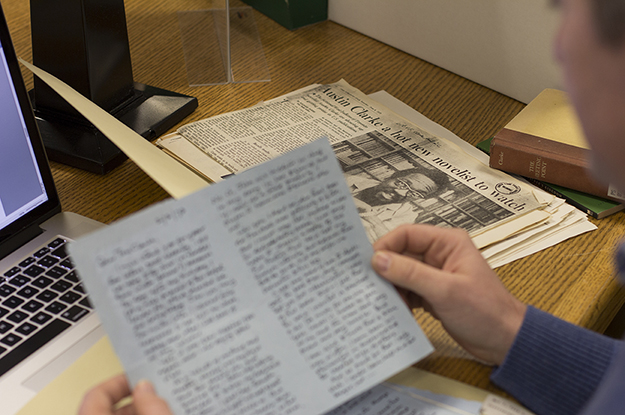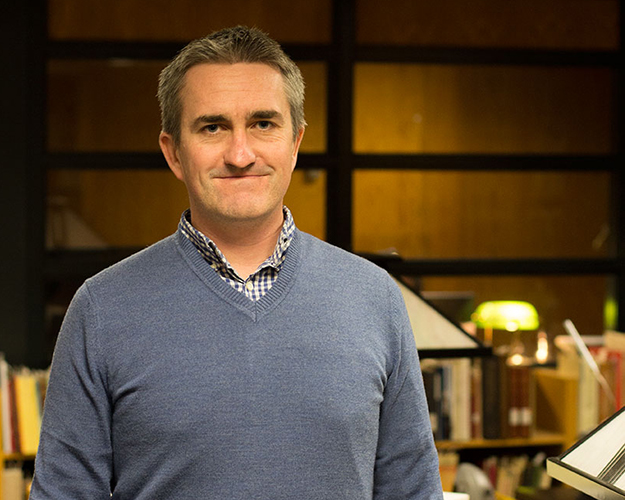Paul Barrett using ‘digital humanities’ to study Canadian author Austin Clarke

'Despite winning the Giller Prize and the Commonwealth Prize, and despite having been a successful writer for over 50 years, his work receives very little attention in Canadian literary criticism,' said Paul Barrett, a 2014 Banting Fellow with a double major in Computer Science and English.
Banting Fellow Paul Barrett wants to know why literary critics and researchers do not often consider Canadian author Austin Clarke’s novels and writing as part of the Canadian literary landscape.
Often regarded as Canada’s first multicultural writer, Austin Clarke was born in St. James, Barbados and moved to Toronto in 1955 — going on to become a prominent writer, teacher, journalist and civil servant. However, his work has never received the critical reception of his contemporaries, argues Barrett.
“Despite winning the Giller Prize and the Commonwealth Prize, and despite having been a successful writer for over 50 years, his work receives very little attention in Canadian literary criticism,” said Barrett, a postdoctoral fellow working in both literary and digital realms with a double major in Computer Science and English.
Using digital humanities techniques to statistically analyze and identify topics across a wide range of materials, Barrett aims to be able to better place Clarke’s work within Canadian literary canon.
McMaster’s William Ready Division of Archives and Research Collections, located in Mills Memorial Library, contain an extensive archive of Clarke’s books, manuscripts, letters, tapes, receipts, illustrations and recordings — which, laid out end to end, would span 23 metres. Many of these will need to be scanned digitally and then analyzed.
“Digital humanities is that space of overlap where computers are used to complement, not replace, traditional forms of literary analysis,” he explained.
“Digital methods can allow us to analyze his use of nation language — the language of the black Caribbean — to see how Clarke uses nation language in different stages of his career and how that affects his reception within the Canadian literary canon.
“My hope is that by using these methods alongside traditional forms of literary analysis, I can figure out why Clarke is such an enigma for scholars working in Canadian literature and find a place for him in the canon.”


